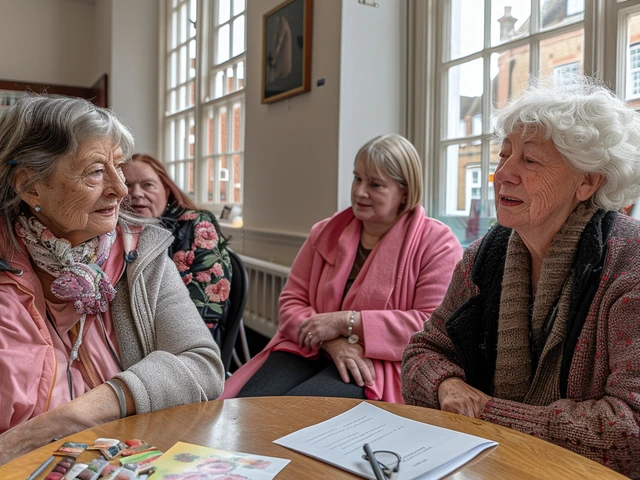Workplace Productivity: Small Moves That Make Big Gains
Sitting longer doesn’t mean you’ll get more done—smart breaks, better food, and simple mental tools do. If you want clearer thinking and steadier energy at work, pick one idea below and use it for a week. Keep it small, track it, then add the next one.
Quick Habits That Push Productivity
Start your morning with a short routine. Eat a balanced breakfast with protein and a source of omega-3s or plan a heart-healthy snack for mid-morning. Food that steadies blood sugar helps focus and reduces afternoon crashes.
Use time blocks. Work 45–60 minutes, then take a 5–10 minute break. During breaks, stand up, stretch, or do two minutes of shoulder rolls to ease neck tension from screens. Micro-movement reduces stiffness and helps you come back sharper.
Practice one breathing method for stress on tough days. Try 4-6-8 breathing: inhale 4 seconds, hold 6, exhale 8. Do it for one minute before a hard task to lower jitteriness and improve decision-making.
Single-task more. Turn off nonessential notifications and focus on one task per time block. Multitasking fragments attention and makes tasks take longer. You’ll finish more when you protect uninterrupted time.
When to Reset: Recovery Tools That Actually Work
Use short recovery tools during long workdays. A five-minute guided mindfulness or body-scan resets your nervous system and often improves focus more than another coffee. If you’re new to meditation, start with one five-minute session and increase gradually.
Try a quick self-massage for office tension: press the base of your skull, roll your shoulders, or use a tennis ball against your upper back for two minutes. These moves ease muscle knots and cut the distraction caused by pain or stiffness.
Biofeedback and heart-rate variability apps can be worth trying if you want measurable results. Five minutes of paced breathing while watching real-time feedback trains your body to recover faster from stress and improves clarity during deadlines.
Set small health goals tied to work outcomes. Instead of “be less stressed,” try “do three five-minute breaks per day” or “walk 10 minutes after lunch.” Concrete actions are easier to stick to and you’ll notice real changes in focus and mood.
Finally, plan rest as part of productivity. Short naps (10–20 minutes) or an evening routine that improves sleep quality will boost memory, creativity, and problem-solving at work. You can’t outwork chronic sleep loss.
Pick one habit, try it for a week, and measure a simple result: fewer mistakes, faster completion, or less tension. Small wins add up fast and keep you doing better work without burning out.

Healthy Breakfast: The Secret to Improved Concentration and Productivity
Hi there! On this page, we will explore the intricate relationship between a healthy breakfast and an increase in concentration and productivity. We will delve into what constitutes a balanced breakfast and how it impacts our mental faculties. Discover how the first meal of the day could be the secret to boosting your performance at work and keeping your mind sharp. Stay tuned for practical tips on what to include in your morning meal for the best results!

How to Restore Your Gut Health After Antibiotics
Dec, 31 2025



